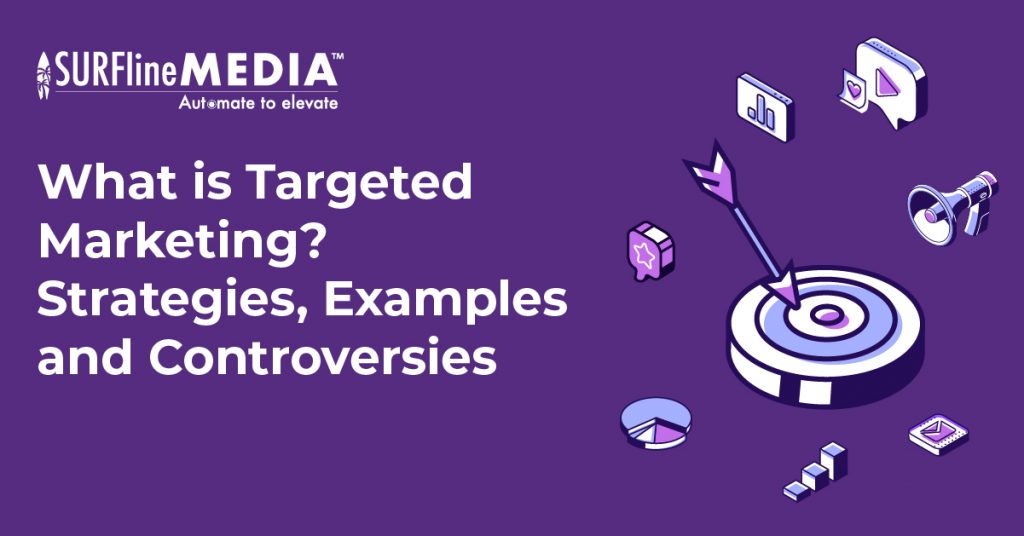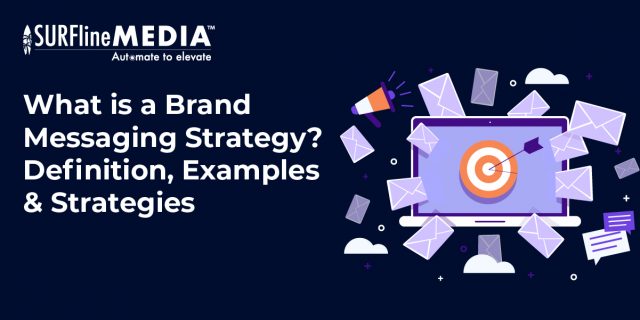

- Vivian
- August 7, 2023
- 3:19 am
- No Comments
What is Targeted Marketing? Strategies, Examples and Controversies
Marketing messages are nothing new to digital marketers and businesses. They are everywhere, from ads and emails to social media posts. But how can you ensure that your marketing messages are seen by the right people? The answer is targeted marketing.
Today’s article will give you a basic understanding of targeted marketing and common strategies, and debunk the myth behind the so-called unethical aspect of this approach.
What is Targeted Marketing?
Targeted marketing, or target advertising, is a strategy that focuses on reaching a specific group of people who are most likely to be interested in your product or service. It involves identifying your target audience and using various marketing channels to reach them.
The goal of targeted marketing is to build up awareness of your product or service through content relevant to your target customer’s interests and needs, bring a better customer experience, and ultimately encourage them to take action.
Read more: Content Marketing vs. Digital Marketing
In other words, you want your messages and promotions to be delivered to the right people at the most opportune moments in their decision-making process. Based on this goal, this marketing approach can be applied to all stages of full-funnel marketing, but it is most commonly used in the awareness and consideration stages.
In the awareness stage, targeted marketing is used to get people to know about your brand or product and to start thinking about it as a solution to their problem. This can be done by creating social media posts or running online advertising that targets people who are interested in your industry.
On the other hand, when it comes to the consideration stage, the expected result is to get people to consider your brand or encourage them to take action (in short, generate leads or drive sales). This can be done by running PPC campaigns that target people who are searching for products or services like yours.
Targeted Marketing Strategies and Examples
Demographics
Demographic segmentation refers to the statistical data that categorizes a population based on various factors, such as age, gender, income, education, occupation, marital status, and geographical location. Target advertising strategies based on demographics involve tailoring your campaigns to appeal specifically to a particular group of people.
Read more: Social Media Automation 2023 Guide for Beginners
Psychographics
Psychographic segmentation focused on the psychological attributes and traits of consumers, including their beliefs, values, interests, lifestyles, and attitudes. Understanding psychographics allows marketers to connect with consumers on a deeper emotional level and align their products or services with their customers’ aspirations and desires.
Behavioral
Behavioral targeting involves analyzing consumers’ online behavior, such as browsing history, purchase patterns, search queries, and interactions with websites or apps. This data helps marketers tailor advertisements to align with consumers’ demonstrated interests and behaviors.
Controversies: Is Targeted Marketing Unethical?
There are ongoing arguments against targeted marketing, mostly surrounding how intrusive, manipulative, and discriminatory a target marketing campaign can be.
Ultimately, whether or not targeted marketing is unethical is a matter of opinion. Valid discussions circulating on both sides of the issue are unavoidable. However, businesses should be aware of the potential ethical implications of targeted marketing before using it.
First, It is important to be transparent about how businesses are using targeted marketing. Businesses should disclose to consumers how their data is being collected and used for targeted marketing purposes.
Second, businesses should avoid using this controversial approach to manipulate people. Businesses should not use targeted marketing to exploit people’s vulnerabilities or to prey on their fears.
Last but not least, businesses should avoid using targeted advertising in a way that discriminates against people based on their race, gender, sexual orientation, or other protected characteristics.
Adding positivity to the controversies, targeted marketing is not all about profits; it can also help improve user experience in several ways. Insights can be used to enhance customer support and resolve issues more quickly and efficiently.
Run a Winning Targeted Marketing Campaign with CRM and Marketing Automation
Running a winning targeted marketing campaign can be a challenge, but it is essential for businesses that want to reach their target audience and achieve their marketing goals. By using CRM and marketing automation, businesses can collect and manage customer data, segment their audience, create marketing messages, and track the results of their campaigns.
Surfline Media offers a comprehensive CRM and marketing automation solution that can help businesses run winning targeted marketing campaigns. With Surfline Media, businesses can:
- Manage customer data
- Segment audience based on demographics, interests, and behavior
- Create targeted marketing messages that are relevant and engaging
- Track the results of the campaigns and optimize results over time
Visit this page to learn more about our CRM and marketing automation solutions. Contact us today to learn how we can help you achieve your marketing goals.
_______________________

Surfline Media – Automate to Elevate
Our website: https://surflinemedia.com/
Contact us: https://surflinemedia.com/contact-us/
Phone number: +1 323-741-4482
Email: [email protected]






